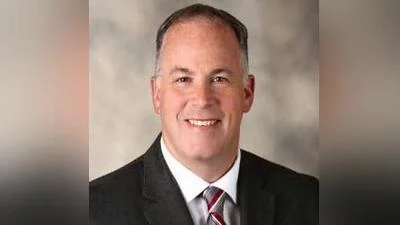Scott Allen, Wisconsin State Representative for 82nd District | Facebook
Scott Allen, Wisconsin State Representative for 82nd District | Facebook
According to the Wisconsin State Legislature's official website, the bill was described as follows: "the sales and use tax exemption for electricity and natural gas sold for residential use. (FE)".
The following is our breakdown, based on the actual bill text, and may include interpretation to clarify its provisions.
In essence, this bill amends the existing sales and use tax exemption for electricity and natural gas in Wisconsin, broadening it to cover all months rather than just the months of November through April. This change means electricity and natural gas sold for residential use will be exempt from taxation year-round. The effective date of the bill is the first day of the second month following its publication, extending the tax exemption without regard to seasonal considerations. This measure is poised to provide a continuous financial relief on utility costs for residential consumers throughout the entire year.
The bill was co-authored by Senator André Jacque (Republican-1st District), Representative Elijah R. Behnke (Republican-6th District), Representative Barbara Dittrich (Republican-99th District), Representative Joy L. Goeben (Republican-5th District), Representative Rob Kreibich (Republican-28th District). It was co-sponsored by Senator Tim Carpenter (Democrat-3rd District), Senator Dan Feyen (Republican-20th District), and Senator Steve L. Nass (Republican-11th District), along one other co-sponsor.
Scott Allen has co-authored or authored another 19 bills since the beginning of the 2025 session, with none of them being enacted.
Allen graduated from the University of Wisconsin-Milwaukee in 1989 with a BA.
Allen, a Republican, was elected to the Wisconsin State Assembly in 2025 to represent the state's 82nd Assembly district, replacing previous state representative Chuck Wichgers.
In Wisconsin, the legislative process starts when a senator, constituent, group, or agency proposes an idea for a bill. After drafting, the bill is introduced, numbered, and referred to a committee for review and public input. If approved, it moves through three readings and votes in both the Senate and Assembly. Once both chambers pass the same version, the bill goes to the governor, who can sign it, veto it, or let it become law without a signature. Only a small share of bills introduced each session ultimately become law. You can learn more about the Wisconsin legislative process here.
| Bill Number | Date Introduced | Short Description |
|---|---|---|
| AB69 | 02/24/2025 | The sales and use tax exemption for electricity and natural gas sold for residential use. (FE) |
| AB67 | 02/24/2025 | Venue for actions in which there is a governmental party |
| AB65 | 02/24/2025 | Entering certain places with intent to commit battery and providing a penalty |
| AB60 | 02/24/2025 | Referendum questions for certain referenda that affect property taxes. (FE) |
| AB55 | 02/24/2025 | Possession of a firearm on school grounds by school employees and fees for licenses to carry a concealed weapon. (FE) |
| AB40 | 02/17/2025 | School safety grants and making an appropriation. (FE) |
| AB39 | 02/17/2025 | Requiring state employees to perform their work at the offices of their employer |
| AB37 | 02/17/2025 | Personalized registration plate fees for gold star family special registration plates. (FE) |
| AB20 | 02/06/2025 | Allowing certain married persons to claim the earned income tax credit when filing a separate return. (FE) |
| AB19 | 02/06/2025 | Increased penalties for crimes against adults at risk; restraining orders for adults at risk; freezing assets of a defendant charged with financial exploitation of an adult at risk; sexual assault of an adult at risk; and providing a penalty |






 Alerts Sign-up
Alerts Sign-up